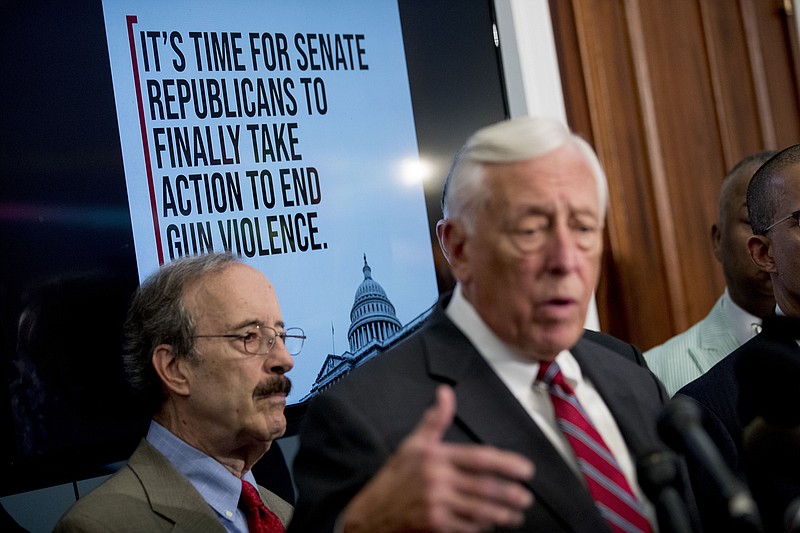Background checks on potential purchasers of firearms are widely promoted as a means for reducing gun violence. Few details about the process are given by advocates of screening.
Consider these two scenarios:
A fifth-grader learns that he is included on a "hit list" of a classmate. He reports this to his mother who in turn alerts school officials. The composer of the list is removed from the classroom. Destination and subsequent evaluation are unknown.
Another student, a ninth-grader, is removed from a school bus because he had drawn up a similar hit list. No further details are available about subsequent evaluations or punishment. At age 16, he is arrested for driving while intoxicated. In subsequent years, he repeatedly expressed to friends a fascination with violence and mass killings. On Aug. 4, armed with an assault weapon and wearing body armor, he murdered nine people, including his sister, and wounded 27 others before police bullets and a bullet from his own weapon kill him.
The two cases illustrate the challenges in determining the scope of background checks.
In the first instance, we must presume that the child who composed the hit list will be evaluated by a school counselor or referred to a psychologist to determine if this event represents a childish expression of a grievance or points to a more serious behavioral problem. In the latter case, the child may be referred to a remedial program, possibly in another school. At that point, does the school system begin a program of close monitoring of that student's behavior? Does a record of the initial threatening behavior follow that child throughout his subsequent education through high school? Should the child move or transfer to another school system, does this information accompany him?
In the second instance, a hit list composed by a high school student would presumably merit tighter monitoring and follow-up. Once friends and associates become aware of a fascination with violence and mass murders, do they have a responsibility to report this behavior? And if so, to whom do they direct their concerns?
To be effective, background checks depend upon a national repository of data that can be quickly accessed. Reportable data would include all felonies that lead to injury or threats to personal safety. Should convictions related to drug and alcohol intoxication be reported? Should a person addicted to substances, who has not committed a crime, be cleared for firearm ownership?
Crimes committed by juveniles pose an additional challenge since some criminal convictions may be expunged from records once the person reaches adulthood.
Mental health poses complex issues for background checks. Which conditions require reporting? Consider a person who suffers from schizophrenia but is stable and fully functional on appropriate medication. Should this person be able to purchase a firearm? Would a person who takes medication for depression be denied the purchase of a firearm? He might be at higher risk of suicide. Would his physician be required to report the patient's mental status to a data bank?
Consider a person who is deemed by mental health professionals to be a sociopath. Assuming that he has a clean criminal record, should he be cleared for purchase of a gun?
And what of the person who seems obsessed with deadly violence, whether in news reports or video games? At what point should his family or friends raise concerns and report him for possible inclusion in a "no-gun" data base? To whom would they address their worries? How should this information be processed and possibly stored?
Consider a person with a volatile temper who lashes out with threats and fists whenever he is challenged. Should friends or family members report their concerns? If so, whom do they notify? How is this person's risk for gun-violence evaluated? Should he be allowed gun ownership?
Is immaturity a disqualifier for purchasing a gun? How can this be quantified?
Background checks are simply political talking-points unless they are accompanied by details. Any legislator who proposes background checks for gun purchases must be pressed for these details on the management of all of the possible circumstances which could influence the behavior of the purchaser.
Contact Clif Cleaveland at ccleaveland@timesfreepress.com.

